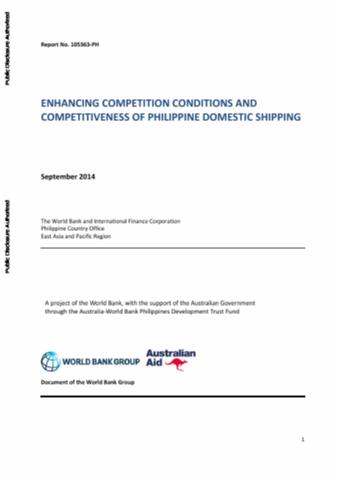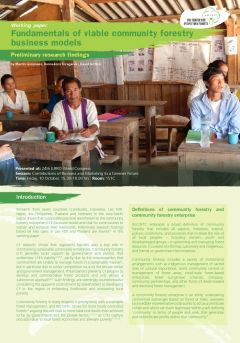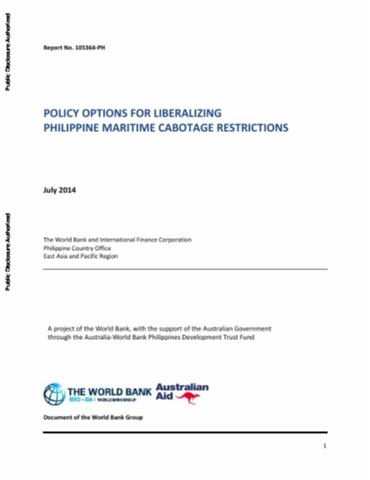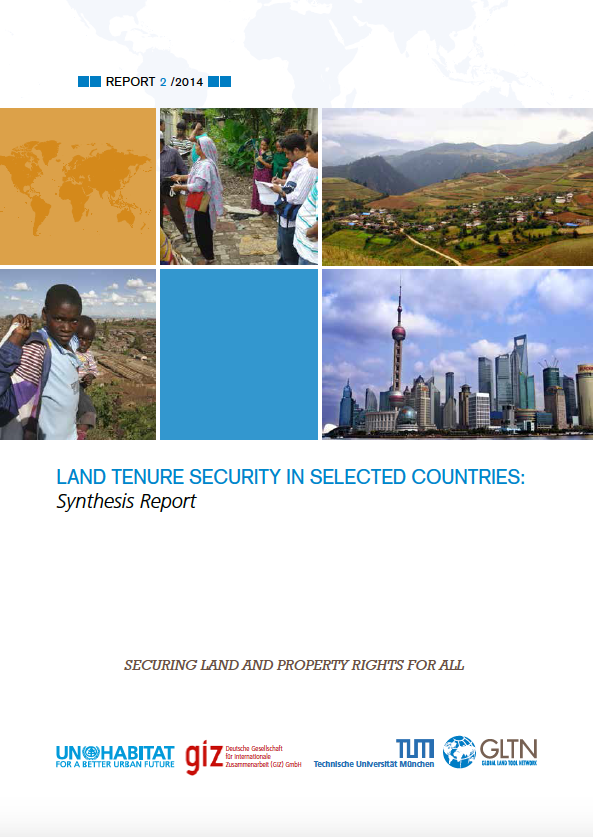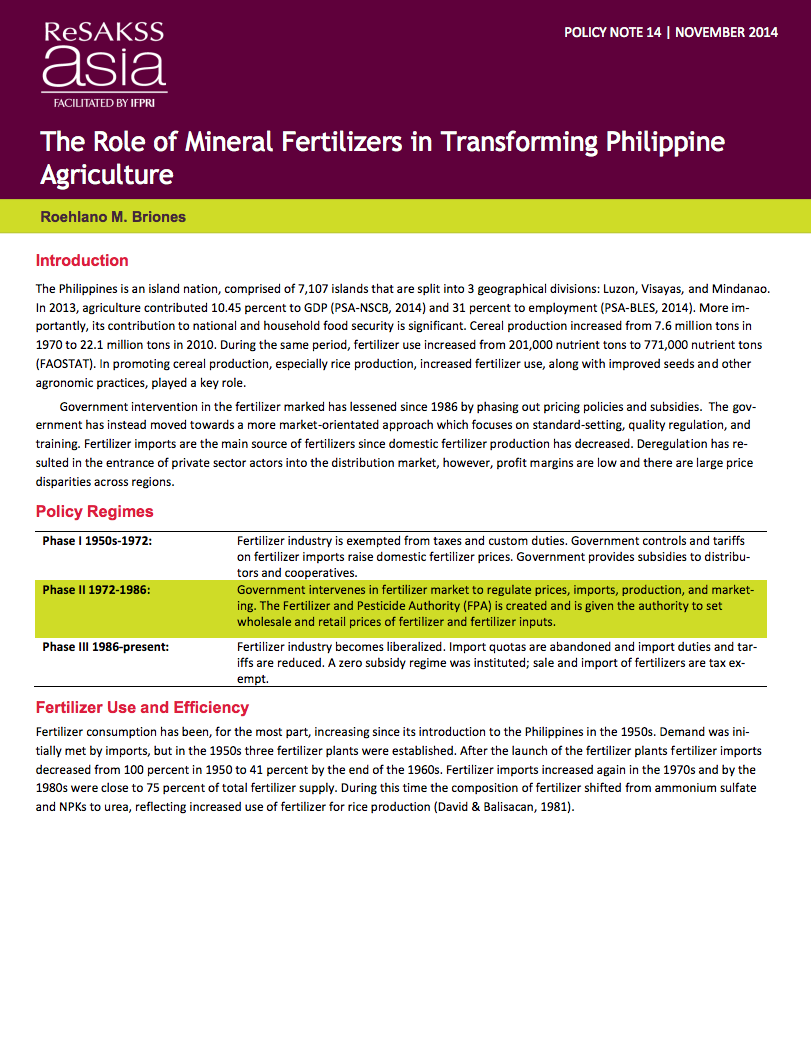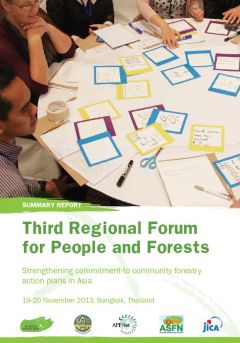For the economy to attain its full potential, the Philippines requires an efficient water transport system. However, this is presently not the case. The domestic shipping industry is characterized by high costs, low quality of service, and a poor safety record. Logistics cost accounts for 24-53…
Using household survey data for 1998, the authors assess the distributional impact of the recent economic crisis in the Philippines. The results suggest that the impact of the crisis was modest, leading to a five percent reduction in average living standards, and a nine percent increase in the…
Research from seven countries (Cambodia, Indonesia, Lao PDR, Nepal, the Philippines, Thailand and Vietnam) in the Asia-Pacific region shows that sustainable practices are inherent to the community forestry enterprise (CFE) business model and vital for communities to sustain and enhance their…
The purpose of this policy note is to present reform options on cabotage liberalization. The goal of cabotage liberalization is to help i) foster more competition in the domestic shipping industry, ii) reduce shipping cost, and iii) improve efficiency, maritime services, and safety standards.…
The purpose of this policy note is to present reform options on cabotage liberalization. The goal of cabotage liberalization is to help i) foster more competition in the domestic shipping industry, ii) reduce shipping cost, and iii) improve efficiency, maritime services, and safety standards.…
This case study focuses on the capacity of local communities to monitor biodiversity and resources in Madagascar, Nicaragua, Philippines and Tanzania. It makes a controlled comparison between local community monitoring and trained scientists’ monitoring and conclude that local and indigenous…
This report covers eight ASEAN countries (Cambodia, Indonesia, Lao People’s Democratic Republic, Malaysia (particularly the state of Sabah), Myanmar, Philippines, Thailand and Viet Nam). The report examines the current status of social forestry in climate mitigation and adaptation in the…
It is well recognized that secure land and property rights for all are essential to reducing poverty because they underpin economic development and social inclusion. Secure land tenure and property rights enable people in urban and rural areas to invest in improved homes and livelihoods.…
The Philippines is an island nation, comprised of 7,107 islands that are split into 3 geographical divisions: Luzon, Visayas, and Mindanao. In 2013, agriculture contributed 10.45 percent to GDP (PSA-NSCB, 2014) and 31 percent to employment (PSA-BLES, 2014). More im-portantly, its contribution to…
The Third Regional Forum for People and Forests was organized by RECOFTC – The Center for People and Forests in collaboration with the Royal Forest Department, the Asia-Pacific Network for Sustainable Forest Management and Rehabilitation (APFNet), the ASEAN Social Forestry Network (ASFN), and …
Throughout the Philippines' agrarian history, various interventions have been made to improve the lives of smallholder farmers, but the majority failed to materialize. In 1988, the Comprehensive Agrarian Reform Law (CARL) was passed, which sought to achieve more equitable land ownership,…
This study identifies farm‐specific and market factors affecting the adoption of herbicides and the level of herbicide use by rice farmers in the Philippines. This requires the application of a modified version of Heckman's two‐step method to estimate a random‐effects double‐hurdle model…


